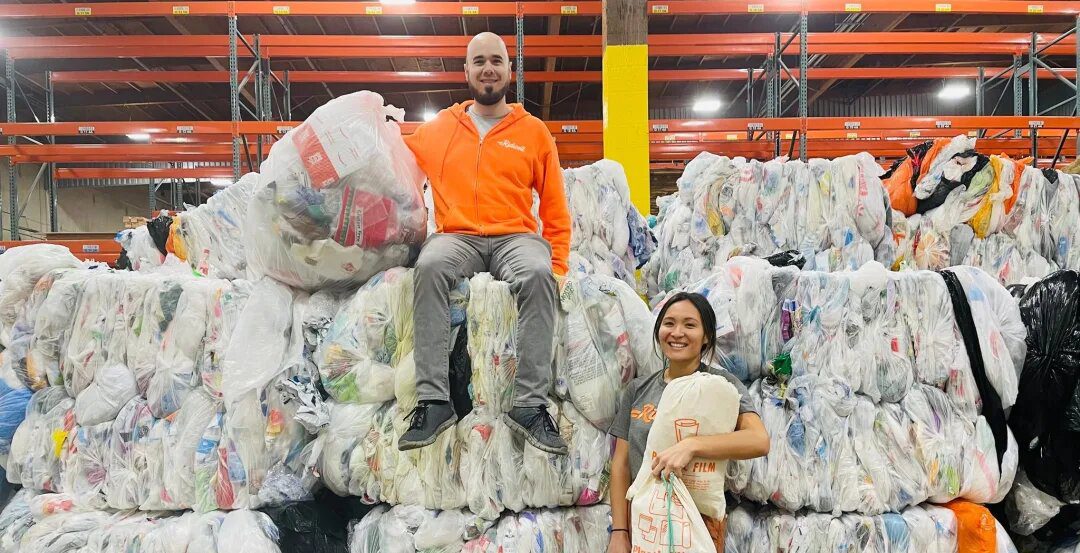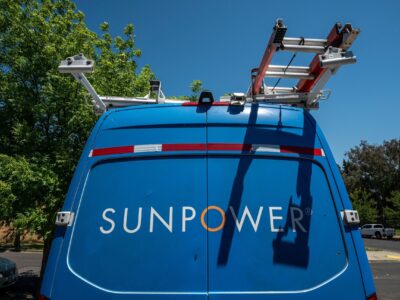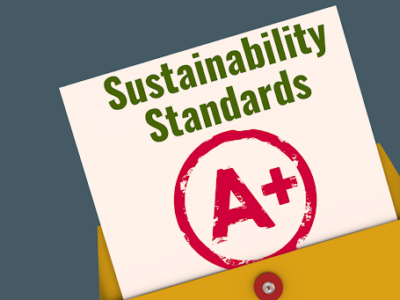People who dutifully place household packaging into recycling bins for municipal pickup might be shocked at how much of it ends up as trash. Many items become contaminated when put in the wrong receptacle or when a dirty food container gets into the bin. Contamination often prevents large batches of otherwise recyclable material from processing, while others can’t be sorted at certain facilities.
Items that can’t be recycled are typically incinerated, placed in landfills, or washed into the ocean. The best way to fill the void is to offer something that most municipal programs don’t: A service that separates items into specific categories with specific end markets.
One company providing such a service is Ridwell, a Seattle-based startup that picks up recycling at customers’ homes and ensures it gets sustainably reused or processed rather than dumped at a landfill. The firm claims to prevent tons of material yearly from becoming waste. It operates in a half-dozen U.S. cities and aims to expand that number in the years ahead.
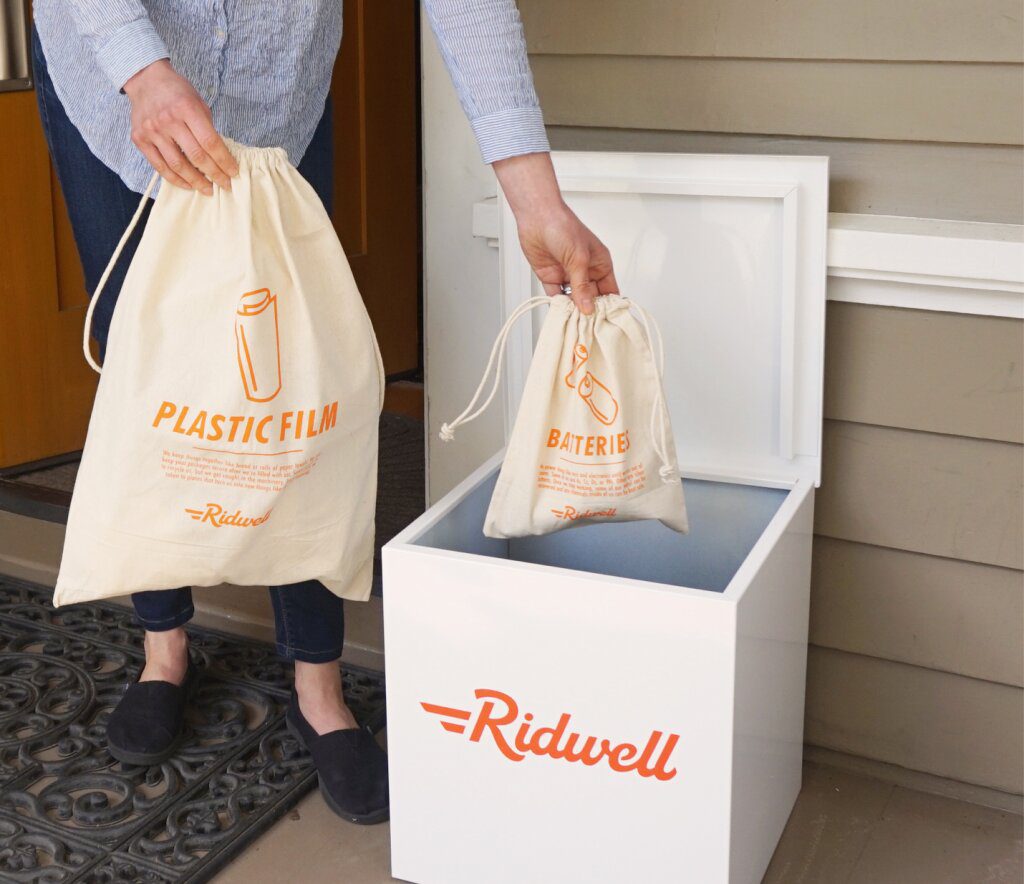
The seeds of Ridwell were planted several years ago when CEO and co-founder Ryan Metzger began researching where to recycle batteries in Seattle.
This task turned out to be quite a challenge. Metzer figured if he couldn’t easily find places that accepted batteries, then most other people couldn’t, either.
Metzger teamed up with his 6-year-old son, Owen, to provide a carpool service that involved driving around the neighborhood and picking up others’ recyclables before transporting them to the appropriate centers.
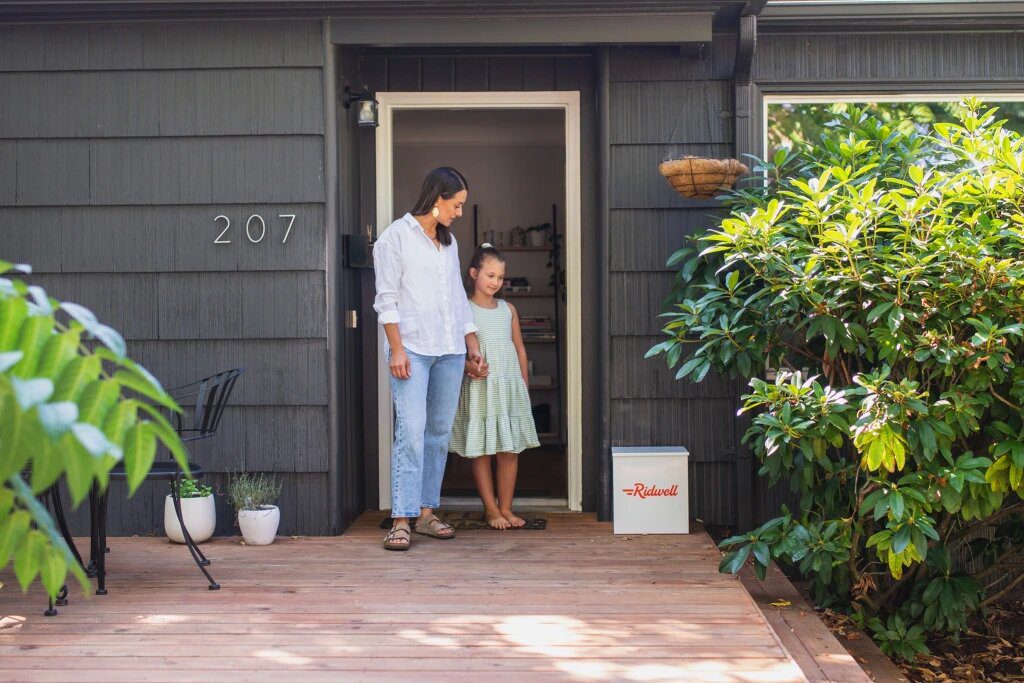
“Every weekend, we would pick one thing in our house and research where it could go — here’s a partner for batteries, and for light bulbs, and paint, and eyeglasses, and on and on,” Metzer told Fast Company. “We discovered that a lot of options existed. They were just not necessarily known or that accessible.”
Soon Metzer’s side gig started drawing hundreds of customers, and he decided to turn it into a business. He co-founded the company in 2018 along with David Dawson, Justin Gough, and Aliya Marder. Dawson currently serves as the firm’s head of engineering, while Gough is the operations manager.
Ridwell eventually moved to a subscription-based business model that picks up hard-to-recycle materials such as plastic film, batteries, and light bulbs. The company also partners with local organizations to pick up donations for charity.

Ridwell has signed more than 90,000 members in less than five years. The company’s payroll has grown to 200-plus employees, and it expects to have more than 300 by early next year. As of February 2023, it operated in six markets: Seattle, Portland, Austin, Texas, Minneapolis, Denver, and the San Francisco Bay Area. A Los Angeles launch is expected in the spring of 2023.
The business model is pretty simple. Members pay a monthly fee of $14 to $18 and are given Ridwell bins and bags to store recyclables.
Rather than have members put them on the curb, the service arrives at the front door every two weeks to collect them. The material is then recycled or reused by local partners. The company completed a pilot with multilayered plastic, such as chip bags and granola wrappers, which could add to its categories.

Ridwell picks up some items on every stop it makes, which it calls core categories. It also rotates additional categories, such as towels that animal shelters or community support groups can reuse.
Widening the list of items is crucial because so much material ends up as waste — even in cities with strong recycling programs, such as Seattle.“There are still dozens and dozens of categories that don’t work in that system,” Metzger said.

